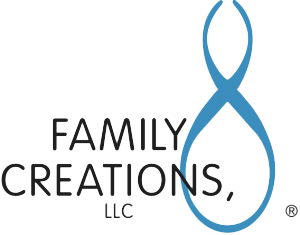
What is Involved in the Process?
The procedure is very common and safe for women today, and egg donation will not affect their future fertility. Healthy, non-smoking women between the ages of 20-29 are the best candidates to donate quality eggs. To get started, prospective donors will apply with a family planning agency, like Family Creations, and pass a screening process to ensure that they are healthy enough to go through with the procedure. Once they receive the OK to get started with egg donation, they will start a series of self-injectable medications that will make their body overproduce eggs. During the entire process, which takes 2-3 months from start to finish, doctors will monitor the donor’s reaction to the medication.
Once the eggs are ready, doctors will remove them by a process called transvaginal ultrasound aspiration. This is a minimally invasive procedure in which the donor is awake and may only need light sedation and pain killers. This process takes about 30 minutes and most women recover right away, or within 1-2 days after with bed rest. Egg donors are compensated for their time and travel. They can repeat the egg donation process up to six times.
Egg Donation Will Not Affect Future Fertility
Every woman is born with about 1 million eggs inside their ovaries. By the time they reach puberty, about 300,000 of these eggs are left. Throughout their entire life, women will ovulate 300-400 eggs before menopause. Donating some of your eggs does not cause your body to stop ovulating. Your body will continue to drop eggs until menopause is reached. And with those numbers, you have plenty to spare.
The Study
Where’s your solid scientific proof that egg donation will not affect future fertility? I’m glad you asked. A study that was conducted in Belgium from 1999-2010 concluded that the fertility of 60 women who previously donated eggs were not affected. The study looked at women who averaged age 30 and had donated their eggs within the past 5 years. Of the 60 women, 54 reported becoming pregnant within a year of trying to conceive, and 3 more became pregnant within 18 months. The remaining 3 women became pregnant after fertility treatments. These women needed treatment due to their male partner’s infertility issues. 16% of the women in this study did report menstrual cycle changes after donating, but as you can see, egg donation will not affect future fertility.
Give the Gift of Life
Becoming an egg donor is one of the greatest ways you can touch someone else’s life. For some couples, this means they will be able to carry a baby and experience all the ups and downs that a normal pregnancy means. They get to watch the child grow through ultrasounds and feel proud knowing that the child will be genetically related to one of the intended parents. Some couples will require the use of a gestational surrogate, but they will still be able to be a part of the growth of their baby through the help of surrogacy agencies like Family Creations.
Applying to become an egg donor is an easy and free process that can be completed online. Once you’ve made the decision to donate, contact us with any questions you may have about the process or about how egg donation will not affect future fertility. We have egg donation specialists standing by who will guide you through the whole process. You can also visit our website at www.familycreations.net to listen to testimonials from our egg donors.
